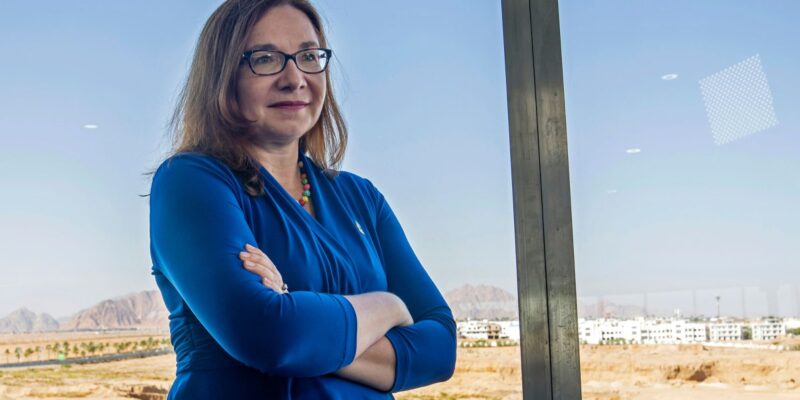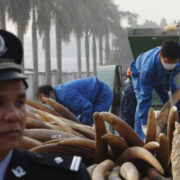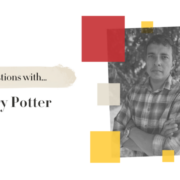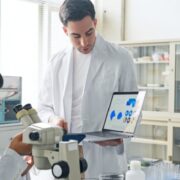
This story was originally published by Inside Climate News and is reproduced here as part of the Climate Desk collaboration.
For people involved with research and advocacy about climate change, the results of last week’s presidential election sting.
To get a sense of what’s to come and what’s needed to ensure domestic climate action continues, I spoke with Katharine Hayhoe, an atmospheric scientist and author who teaches at Texas Tech University and is chief scientist for the Nature Conservancy.
She is one the country’s best-known communicators about climate change and often talks about how her religious faith informs her views about protecting the environment. Her 2021 book, Saving Us: A Climate Scientist’s Case for Hope and Healing in a Divided World, was not written for this moment, but might as well have been.
She specified that she was speaking for herself and not for her employer or any organization. The following has been edited for length and clarity.
How are you feeling about the election results?
Disappointed and concerned. I was a lead author of the National Climate Assessment under the last Trump administration, and, as you know, I am firmly of the conviction that a thermometer does not give you a different answer depending on how you vote. A hurricane does not knock on your door and ask you which political party you’re registered with before it destroys your home.
Climate change is no longer a future issue. It’s already affecting us today. It’s affecting our health. It’s affecting the economy, which was a big factor in this election. It’s affecting the safety of people’s homes, the cost that they’re paying for insurance and for groceries, and it’s putting our future and that of our children on the line.
I want to see politicians arguing over who has the best solutions to climate change. I want them arguing over how to accelerate the clean energy transition. I want them to have competing proposals for how to build resilience and how to invest in the infrastructure and the food and the water systems that we need to ensure that people have a better and more resilient future. And unfortunately, I don’t think that’s what we’re going to see with this administration. Of course, I would be absolutely delighted to be proved wrong.
What’s a good mindset going forward for people who care about supporting the energy transition?
That’s a great question, because our mindset really determines what we focus on and what we can accomplish. So in terms of our mindset, I am an advocate for recognizing, first of all, that the situation is dire, and on many fronts. It’s already getting worse. People might be surprised to hear me say that, because often I’m tagged as a relentless optimist. But for me, hope begins with recognizing how bad the situation is, because you don’t need hope when everything’s fine. And I’m a scientist, so I have a front row seat to what’s happening in terms of climate impacts, and the biodiversity crisis, the pollution crisis and more. So our mindset has to begin with a realistic look at what’s happening and how it is already affecting us. We cannot sugar coat it.
But that is only one side of the coin. The other side of the coin has to be focused on what real solutions look like. And when we lose hope, we tend to look for silver bullets, for one solution that if everybody did this, it would fix the problem. There are no silver bullets, but there’s a lot of silver buckshot, so to speak. If we put it all together, we have more than enough of what we need.
And often, too, when we lose hope and when we’re discouraged and frustrated, I see a tendency to turn on each other, to say, ‘Well, you know, you’re not doing exactly what I think should be done, so I’m not going to talk to you or even work with you. I’m going to criticize what you’re doing.’ Now, more than ever, is a time to come together, to focus on what unites us rather than what divides us, to be focused on what we can accomplish together, even if different people come at it for different reasons.
I really feel like, in the next four years, we need to lean into collaborations and partnerships and solutions that have multiple wins for both people and the planet. So one group of people might be advocating for solutions because it has an immediate health benefit. Others might see the immediate economic benefit. Others might see the benefit for nature. For too long, we’ve worked in silos, and now we don’t have time for single wins. We need multiple wins. We need partners that are in it for multiple reasons, and the more we focus on what we can accomplish together, I think the more positive outcomes we’re going to see, and the more allies we’re going to gain, especially at the local to regional level.
You’ve talked about your faith and how it informs your thinking about climate. Does that help when facing the potential for adversity like we’re seeing now?
Oh yes, it definitely does. If you’re familiar with the Bible, you know that there are many, many passages that talk about incredibly negative circumstances and our mindset when confronting and addressing those. All through the Bible, whether you’re looking at David or whether you’re looking at the apostle Paul, there are so many stories and histories of people who confronted suffering and felt discouraged and frustrated at the situation that they were in.
I love the fact that you’re bringing up mindset multiple times. The most important part of my faith is not what it says about nature, but what it says about our attitudes and our mindsets. For example, there’s this one verse in Second Timothy, where Paul’s writing to Timothy, who he mentored, and he says, “God has not given us a spirit of fear, rather a spirit of power, of love and a sound mind.” And for me, that’s so impactful, because when I start to feel overcome or overwhelmed by fear, as many of us do when we’re dealing with these situations, I remind myself that that’s not coming from God.
What God has given us is a spirit of power, which is a bit of an old-fashioned way to say that we should be empowered, because research shows that when people are overwhelmed with fear it will paralyze us, and that’s the last thing we need right now. We need to be empowered to act.
The second part is the spirit of love, because love considers others. It’s not just about ourselves, it’s not selfish. It’s about other people and other things that are being affected, in most cases, more than we are.
And then the last part is about a sound mind. Our sound mind can use the information that we have to make good decisions, and so that is really my own litmus test for how I’m making decisions…not out of fear, but out of power, love and a sound mind.















